Anti-Dumping Investigations in Qatar: Legal Framework and Consequences

Introduction
International trade offers great opportunities for businesses in Qatar and the Gulf Cooperation Council (GCC), but it also exposes local industries to unfair competition. One such unfair practice is “dumping,” where foreign exporters sell products in Qatar at artificially low prices, undercutting Qatari manufacturers. To protect its economy, Qatar has established a robust legal framework to investigate dumping and impose remedies. In recent years, Qatar’s Ministry of Commerce and Industry (MoCI) has actively utilized these laws – for example, in 2024 it imposed anti-dumping duties on certain imported car batteries from South Korea and India to shield local producers. This article provides an in-depth case study of how anti-dumping investigations are conducted in Qatar, the legal consequences for offenders, and practical guidance for businesses to remain compliant and protected.
What is Dumping? Definition and Economic Impact
“Dumping” in trade occurs when a company exports a product to another country at a price lower than the price it normally charges in its home market. In simple terms, if a foreign product is sold in Qatar below its “normal value” (often meaning below the domestic price or cost), it may be considered dumped. While cheap imports might seem beneficial to consumers at first, dumping is detrimental to the local market. Consistently underpriced imports make it impossible for domestic producers to compete, potentially driving them out of business. Over time, this harms Qatar’s national industry by causing loss of market share, reduced profits, layoffs, and even the collapse of local companies. In the long run, consumers could also suffer if the dumped imports eliminate competition and then raise prices. For these reasons, dumping is viewed as an unfair trade practice that distorts free competition.
Economically, dumping can lead to material injury in the importing country’s industry. Local manufacturers may experience inventory build-ups, declining sales, and profit erosion because they cannot match the low prices of dumped goods. Normal market forces are skewed – instead of competing on quality and efficiency, foreign exporters may simply dump products at low prices (sometimes even below production cost) to capture the market. To counteract this, many countries enforce anti-dumping measures. Qatar, like other WTO members, has the right to act against dumping when it causes injury to a domestic industry. By addressing dumping through legal means, Qatar aims to maintain fair competition and ensure the sustainability of its national industries.
Legal Framework in Qatar and the GCC for Anti-Dumping
Qatar’s approach to dumping is grounded in international and regional trade laws, as well as its own national legislation:
- WTO Anti-Dumping Agreement: Qatar has been a member of the World Trade Organization (WTO) since 1995 and abides by the Agreement on Implementation of Article VI of GATT 1994 (the “Anti-Dumping Agreement”). Under WTO rules, Qatar cannot impose anti-dumping duties arbitrarily – it must follow defined procedures and only act if there is evidence of dumping, material injury to a domestic industry, and a causal link between them. The WTO framework ensures that any anti-dumping investigation in Qatar meets global standards of fairness, transparency, and due process.
- GCC Unified Anti-Dumping Law: As part of the GCC, Qatar adopted the Unified Law (Regulation) for Combating Dumping, Countervailing Measures, and Safeguards via Law No. 10 of 2013. This GCC-wide law provides a harmonized approach for member states to address unfair trade practices. It covers not only dumping, but also foreign subsidies (countervailing measures) and import surges (safeguards). The GCC law reflects a regional commitment to protect Gulf industries – for instance, a dumping investigation under this framework can lead to duties applied across all GCC markets. Qatar’s domestic actions on dumping are consistent with this unified GCC legal structure, ensuring regional coordination in trade remedies.
- Qatar’s National Law No. 2 of 2019: At the national level, Qatar enacted Law No. (2) of 2019 on Supporting the Competitiveness of National Products and Combating Harmful Practices in International Trade. This is the primary domestic legislation empowering authorities to combat dumping. Law No. 2 of 2019 – often dubbed the “National Product Competitiveness Law” – was introduced to strengthen local industries’ protection and expand upon the tools in the Customs Law. It explicitly targets “harmful practices” in trade, which include dumping, subsidization, and sudden import surges. Crucially, this law establishes the legal basis for Qatar’s anti-dumping investigations and measures. It aligns closely with WTO principles, stating that before any anti-dumping duty is imposed, authorities must prove that: (i) imports are dumped, (ii) domestic industry has suffered material injury (or threat of injury), and (iii) the dumping is the cause of that injury. These criteria mirror the WTO Anti-Dumping Agreement’s requirements, embedding global standards into Qatari law.
In summary, Qatar’s anti-dumping regime operates on three levels – international (WTO rules), regional (GCC Unified Law), and national (Law 2 of 2019 and related regulations). Together, they provide a comprehensive legal framework. Qatar’s law empowers the Ministry of Commerce and Industry to investigate dumping cases and impose remedies, while remaining consistent with GCC cooperation and WTO obligations. This multi-layered framework means that companies in Qatar benefit from protections against unfair imports, and foreign traders are assured that Qatar’s actions will be rule-based and justifiable under international law.

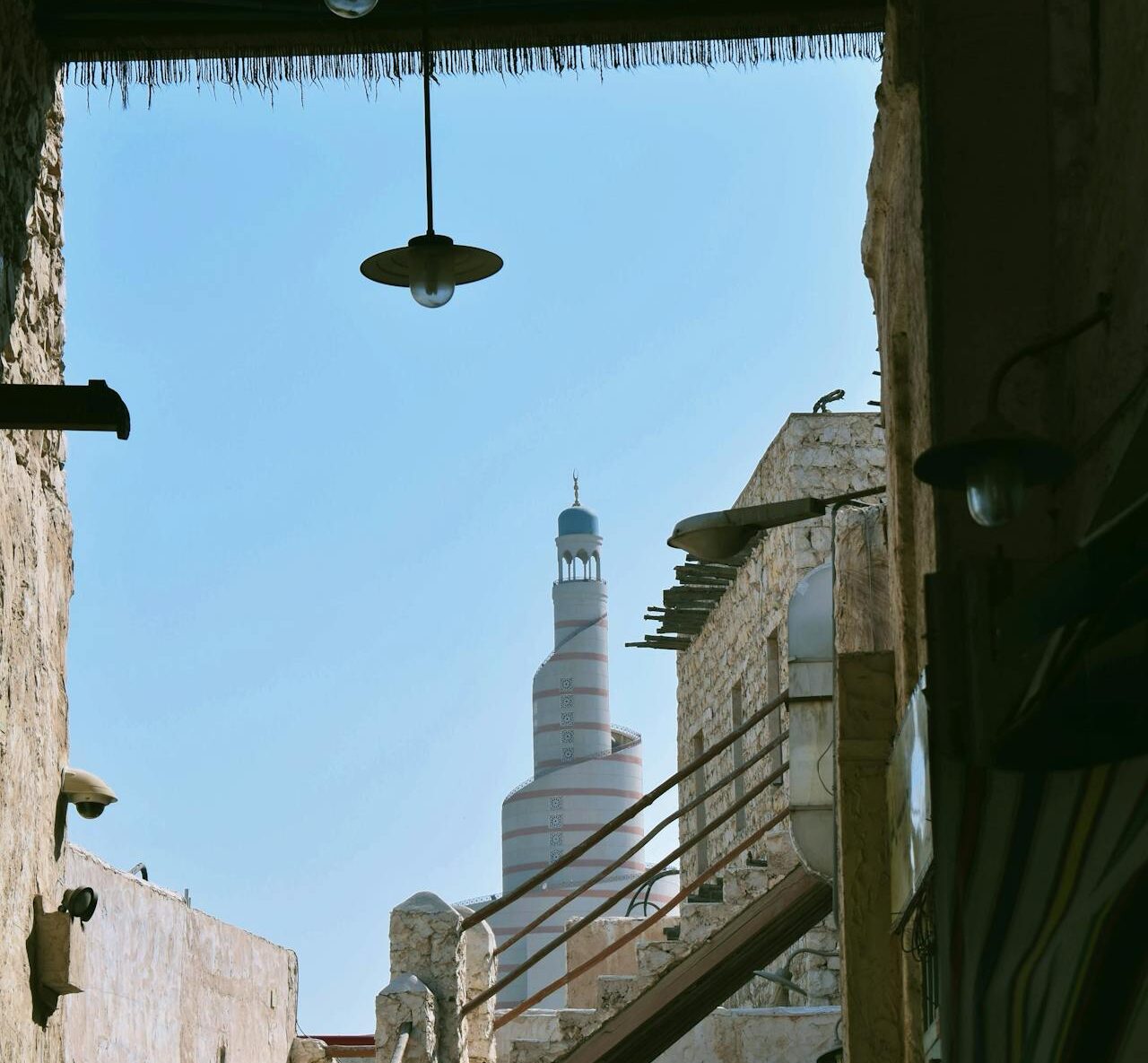
Anti-Dumping Investigation Process in Qatar (Complaint to Final Decision)
When a Qatari industry suspects that a foreign competitor is dumping products in the local market, there is a clear legal procedure to address the issue. Qatar’s Law No. 2 of 2019 and its implementing regulations outline step-by-step how an anti-dumping investigation unfolds, largely reflecting international best practices. Below is a breakdown of the process from the initial complaint to the final decision:
- Filing a Complaint: The process typically begins with the domestic industry. A Qatari producer (or group of producers) that manufactures a product similar to the allegedly dumped imports can file a written dumping complaint with the Ministry of Commerce and Industry (MoCI). Qatar’s law created a specialized body within MoCI – the Committee for Supporting Competitiveness of National Products and Combating Practices Harmful to International Trade – which is responsible for handling such complaints. The complaint must include evidence supporting the dumping claim: data showing the export price in Qatar vs. the normal price in the exporter’s home market, and evidence of injury to the local industry (such as loss of sales, price suppression, reduced profits, layoffs, etc.). The competent department at MoCI will review the submission to ensure it’s complete and that the domestic industry represents a significant portion of Qatari production of that product (to prevent frivolous complaints).
- Initiation of Investigation: Once a properly documented complaint is received, the Committee evaluates the evidence. If the preliminary evidence of dumping and injury is convincing, the Committee recommends to the Minister of Commerce and Industry to start an official anti-dumping investigation. The Minister must approve the initiation. (Notably, Qatar’s law also allows self-initiation: the Minister can authorize an investigation even without a formal complaint if the Committee finds sufficient evidence of harmful dumping, for example, based on its own market monitoring or at the request of another government agency.) When an investigation is initiated, MoCI will publish a notice (usually in the Official Gazette or on its website) announcing the investigation, the products and countries involved, and invite interested parties to participate. According to the law, the investigation period is capped at 12 months from the date of initiation, ensuring that cases are resolved within about one year.
- Data Collection and Analysis: During the investigation, MoCI’s Committee conducts a thorough fact-finding exercise. This involves sending detailed questionnaires to foreign exporters, producers, and relevant importers asking for information on production costs, pricing, sales volumes, and other data. The foreign companies accused of dumping have the right (and are strongly encouraged) to respond with accurate data. At the same time, the Committee gathers information from Qatari producers on the injury they have suffered (financial statements, market share data, etc.), and from Customs on import volumes and values. Key determinations are made in this phase:
- Dumping Margin Calculation: Investigators compare the export price of the product (the price at which the foreign goods are sold into Qatar) with the normal value of the product (typically, the price of the goods in the exporter’s domestic market, or a constructed value). If the export price is significantly lower, the difference is the dumping margin. Qatar follows WTO standards in this calculation, ensuring a “fair comparison” of prices after accounting for differences in factors like transportation and quality.
- Injury Analysis: The Committee examines whether the domestic industry has suffered material injury. This involves an objective analysis of all relevant economic factors – production levels, sales, market share, profits, employment, etc. One critical aspect is looking at import volumes and prices: Has there been a surge of low-priced imports? Are these imports significantly underselling the Qatari product, driving prices downward? The law’s executive regulations direct the authorities to assess if dumped imports have caused a significant drop in domestic selling prices or a significant loss of market share. For example, they will evaluate if import volumes increased sharply (in absolute terms or relative to domestic production/consumption) and whether import prices were substantially lower than domestic product prices. If the dumped imports are only a negligible quantity or the price difference is very small (de minimis), the case may be dismissed, as trivial dumping should not trigger measures.
- Causal Link: Investigators must also demonstrate causation – i.e., that the dumping is the direct cause of injury to the domestic industry, rather than other factors. They will separate out other possible reasons for the industry’s difficulties (such as economic downturns or changes in technology) to ensure that dumping is indeed the culprit.
- Preliminary Determination: Roughly mid-way through the investigation (around the 6-month mark), the Committee may make a preliminary determination based on the initial data. If preliminary analysis indicates that dumping is occurring and causing injury to the Qatari industry, the authorities can take provisional measures at this stage to prevent further harm. A common provisional measure is a temporary anti-dumping duty – a deposit or tariff applied to the imports in question for a limited period (often 4–6 months) while the investigation continues. Qatar’s law permits such provisional duties or price undertakings after at least 60 days from initiation, if an initial affirmative finding is made. The provisional duty rate would generally equal the estimated dumping margin found so far. This immediate relief can be crucial for the domestic industry, as it curtails the influx of dumped goods during the investigation. Provisional measures are temporary – if the final decision later finds no dumping, any provisional duties collected are typically refunded to importers.
- Final Determination and Measures: The investigation culminates in a final determination, typically within the 12-month deadline. The Committee compiles a final report, considering all data and arguments (including any submissions by foreign exporters or importers challenging the findings). The final report will conclude whether dumping happened and caused injury, and it will recommend action. The ultimate decision rests with the Minister of Commerce and Industry:
- If the evidence does not prove dumping or injury, the Minister will issue a decision to terminate the investigation without any measures. This decision is published, and the case is closed.
- If dumping and injury are confirmed, the Minister can impose definitive anti-dumping measures. The primary measure is a final anti-dumping duty, which is an additional customs tariff on the specified imports (often set equal to the proven dumping margin). The duty can remain in effect for up to five years under WTO rules (with possibility of extension after review). Qatar’s law also empowers the Minister to consider other forms of relief if appropriate – for example, a price undertaking (if the foreign exporter formally agrees to raise the export price to eliminate the dumping margin, the Minister may accept that in lieu of a duty) or quantitative restrictions in rare cases. In practice, duties are the most common remedy.
- Once the Minister issues the final decision (whether imposing duties or not), MoCI will publish the decision in the Official Gazette and notify all parties, including the complainant industry and the foreign exporters. Transparency is maintained by making the key findings public, often accompanied by a report summary.
Throughout the investigation, interested parties have rights to participate and defend their interests. Foreign companies can submit evidence to rebut dumping allegations or argue that the injury is due to other factors. All parties can review non-confidential case information and provide comments. This inclusive process follows both Qatar’s law and WTO guidelines, ensuring that the investigation is not one-sided.
It’s worth noting that Qatar’s Law No. 2 of 2019 has a special clause for situations involving non-WTO member countries. If dumping originates from a country that is not a WTO member (and thus not bound by WTO rules), the law allows Qatar’s government (Council of Ministers) to take any necessary measure to protect national products, without strictly adhering to WTO procedures. This provides flexibility to act in the national interest in exceptional cases. However, in the vast majority of investigations, the standard process described above is followed.
By adhering to this structured investigation process, Qatar ensures that anti-dumping actions are based on solid evidence and legal merit. This protects the system from abuse – domestic industries must present a strong case to get protection, and foreign exporters are given fair opportunity to contest the claims. Only if the facts unequivocally show dumping and harm will Qatar impose anti-dumping measures, reflecting the seriousness with which such interventions are treated.

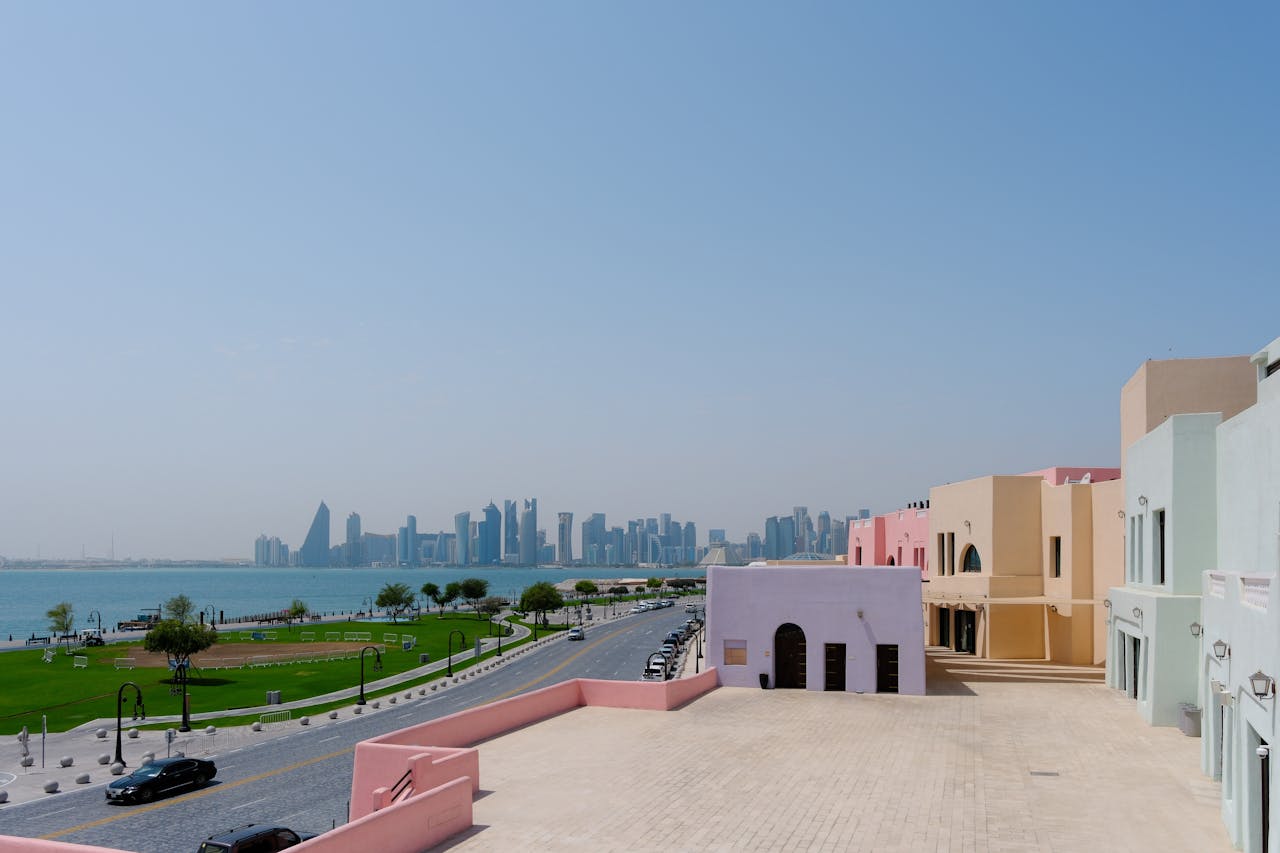
Legal Consequences for Companies Found Dumping
If an investigation concludes that a foreign company has been dumping products into the Qatari market, the legal consequences can be significant. Qatar’s trade remedy laws give the authorities a range of tools to counteract the injurious dumping and help restore fair competition. The primary consequences for the offending exporters (and the importers of their goods) include:
- Anti-Dumping Duties (Tariffs): The most common consequence is the imposition of an anti-dumping duty on the dumped imports. This is an extra tariff on top of normal customs duties, applied specifically to the product in question from the offending country. The rate of the duty is typically set to offset the dumping margin – in other words, it aims to raise the import price up to what it should have been if dumping had not occurred. For example, if car batteries from Country X were found to be dumped at 20% below normal value, Qatar might impose a 20% anti-dumping duty on those battery imports. These duties make the dumped products more expensive in the Qatari market, thereby “leveling the playing field” so that domestic products can compete fairly. Importers are legally required to pay these duties to Qatar Customs when bringing in the goods, and failure to do so means the goods cannot clear customs. Anti-dumping duties can remain in force for up to five years, and can be reviewed and extended if dumping persists and domestic injury would likely return.
- Price Undertakings: In some cases, rather than a duty, the foreign exporter may choose to enter into a price undertaking (also called a price pledge). This is essentially a commitment by the exporter to increase the export price to remove the margin of dumping, or to cease exports at dumped prices. If MoCI accepts such an undertaking, the investigation can be suspended and duties are not applied as long as the exporter honors the agreed price. This can be a mutually agreeable solution – the exporter avoids tariffs, and the domestic industry gets relief through higher import prices. However, if the undertaking is violated, the authorities can swiftly impose duties.
- Countervailing and Safeguard Measures: Qatar’s Law No. 2 of 2019 encompasses not just dumping but other unfair practices. While countervailing measures (tariffs against subsidized imports) and safeguard measures (temporary import restrictions to protect against import surges) are outside the strict scope of dumping, the law allows the Minister to impose “protective fees” or quantitative restrictions if needed. For instance, in a dumping case where there’s also a sudden surge of imports, the authorities might opt for a quantitative restriction (quota) as a preventive measure. Generally, though, for dumping cases, the remedy will be in the form of duties or price undertakings, since those directly address the unfair pricing.
- Retrospective Duty Collection: Under WTO rules (and hence Qatari practice), definitive anti-dumping duties are usually applied from the date of the final decision going forward. However, there is a possibility in certain circumstances to levy duties retroactively (for a period of up to 90 days prior to provisional measures) if there was massive dumping in a short period to undermine the remedial effect. This is only done in egregious cases and with clear prior notice (such as in the public investigation notice that retroactive application might occur).
- Public Disclosure and Reputational Impact: Legal consequences aren’t only monetary. When Qatar imposes an anti-dumping measure, it publishes the decision and often details of the case in the Official Gazette and WTO notifications. The companies named as dumping are thus publicly identified. This can have reputational effects – other buyers or countries may become wary of those exporters. It also signals to the market that Qatar will enforce its trade laws, potentially dissuading other exporters from dumping in the future.
In practical terms, for a company found to be dumping, the immediate impact is financial – their goods now face extra import taxes, which can price them out of the market. For example, when Qatar imposed final anti-dumping duties on certain imported car batteries in 2024, those duties applied to the specified range of batteries from the countries found dumping. Importers of those batteries must now pay the duty, likely making those imports less competitive compared to locally made or fairly priced batteries. The foreign companies involved would either have to absorb the cost or lose sales in Qatar.
It’s important to note that anti-dumping measures are remedial, not punitive. The goal is to prevent harm and correct distortions, not to punish foreign companies for success or protect inefficient local firms. Thus, the duty rate should ideally equal no more than the dumping margin (just enough to remove the unfair advantage). Companies that adapt by raising their export prices to fair levels can continue to do business in Qatar without paying duties (either via formal undertakings or after duties expire).
Finally, companies should be aware that violating trade remedy measures is a serious offense. If an exporter or importer tries to circumvent an anti-dumping duty (for example, by slightly modifying the product, misclassifying it, or routing it through another country), Qatar’s customs authorities and the MoCI can enforce anti-circumvention actions. This might involve extending duties to circumvented products or taking legal action for customs fraud. Thus, the safest course for any company is to comply with the measures, or use legal channels (like appeals) to contest them, rather than attempting evasion.

Rights of Affected Parties and the Appeals Process
Anti-dumping investigations and measures, while aimed at protecting domestic interests, must also respect the rights of all parties involved – including foreign exporters and importers. Qatar’s legal framework, aligned with WTO requirements, provides several safeguards to ensure the process is fair and that decisions can be reviewed:
Participation Rights during Investigation:
From the moment an investigation is initiated, all interested parties have the right to participate. This includes the foreign manufacturers/exporters accused of dumping, the importers of the product in Qatar, and the Qatari domestic industry (complainants). MoCI will typically send out notices and questionnaires to known exporters and importers. Exporters have the right to submit evidence to show that they are not dumping (for instance, they might argue that the export price is not actually below home market price when adjustments are made, or that the product types are different). They can also provide information to argue that the domestic industry hasn’t suffered injury due to their imports (maybe the injury was due to other reasons). All parties can request meetings or hearings with the investigators to present their case. Additionally, Qatar’s regulations require that interested parties are given access to a non-confidential file containing the information and arguments submitted (with confidential business data removed), so that they can see the facts underlying the investigation and rebut arguments if needed. This transparency is crucial for a fair defense.
Confidentiality Protections:
If a company provides sensitive business information (like detailed cost data or trade secrets) to MoCI during the investigation, it can request that this information be kept confidential. The authorities are obligated to keep such information confidential and use it only for the investigation, providing only summary or aggregated versions to other parties. This encourages companies to cooperate without fear of revealing competitively sensitive data to competitors.
Provisional Measure Review:
If provisional anti-dumping duties are applied, the foreign exporters have an opportunity to comment on the preliminary findings. They might provide additional evidence in this phase to try to reverse or reduce the duty. In some cases, exporters may enter into price undertakings at this stage to suspend the provisional duties – this is a negotiation process where the exporter agrees to raise prices, and the MoCI, if satisfied, can accept this and suspend duties pending final determination. Exporters have the right to consultation on such undertakings.
Right to Appeal:
Once a final decision is made on imposing definitive anti-dumping duties, the affected parties have a formal right to appeal the decision.
WTO Dispute Settlement:
Since Qatar’s anti-dumping measures are taken under the WTO framework, foreign governments have the right to challenge Qatar’s measures at the WTO if they believe the measures violate WTO rules. For instance, if Country X’s producer is hit with a Qatari anti-dumping duty and Country X’s government believes Qatar didn’t follow the Anti-Dumping Agreement correctly, that government can request consultations and possibly a WTO panel. In such a scenario, the WTO would review Qatar’s investigation for compliance with the treaty (e.g. checking if proper evidence was found for dumping and injury, if procedures were fair, etc.). Qatar, being an active WTO member, is familiar with this process. In fact, Qatar has played a leadership role in WTO committees overseeing anti-dumping practices – a Qatari official chaired the WTO Committee on Anti-Dumping Practices in Geneva, underlining Qatar’s commitment to the rules-based system. So far, Qatar’s use of anti-dumping has been measured and within the expected legal bounds, meaning a WTO challenge is unlikely if procedures are properly followed.
Rights of the Domestic Industry:
It’s also worth mentioning the complainant (Qatari industry) has rights. If the Ministry were to dismiss a case despite evidence, the domestic industry could seek explanations and potentially appeal in its own way (administratively or even politically). However, the formal appeal in the law is specified for those subject to measures (exporters/importers). Nonetheless, domestic producers can engage with the authorities if they feel the outcome doesn’t adequately address the injury – for example, they might push for a review or adjustment if circumstances change.
In summary, the system balances protection and fairness. The affected foreign companies are not left without recourse – they can defend themselves during the investigation, suggest less harmful alternatives (like price undertakings), and appeal decisions they deem unjust. This ensures that Qatar’s anti-dumping actions remain transparent and justifiable, focusing only on genuine cases of unfair trade. For businesses, it’s reassuring to know that while Qatar will protect its industries, it will do so through an accountable legal process where all sides can be heard.

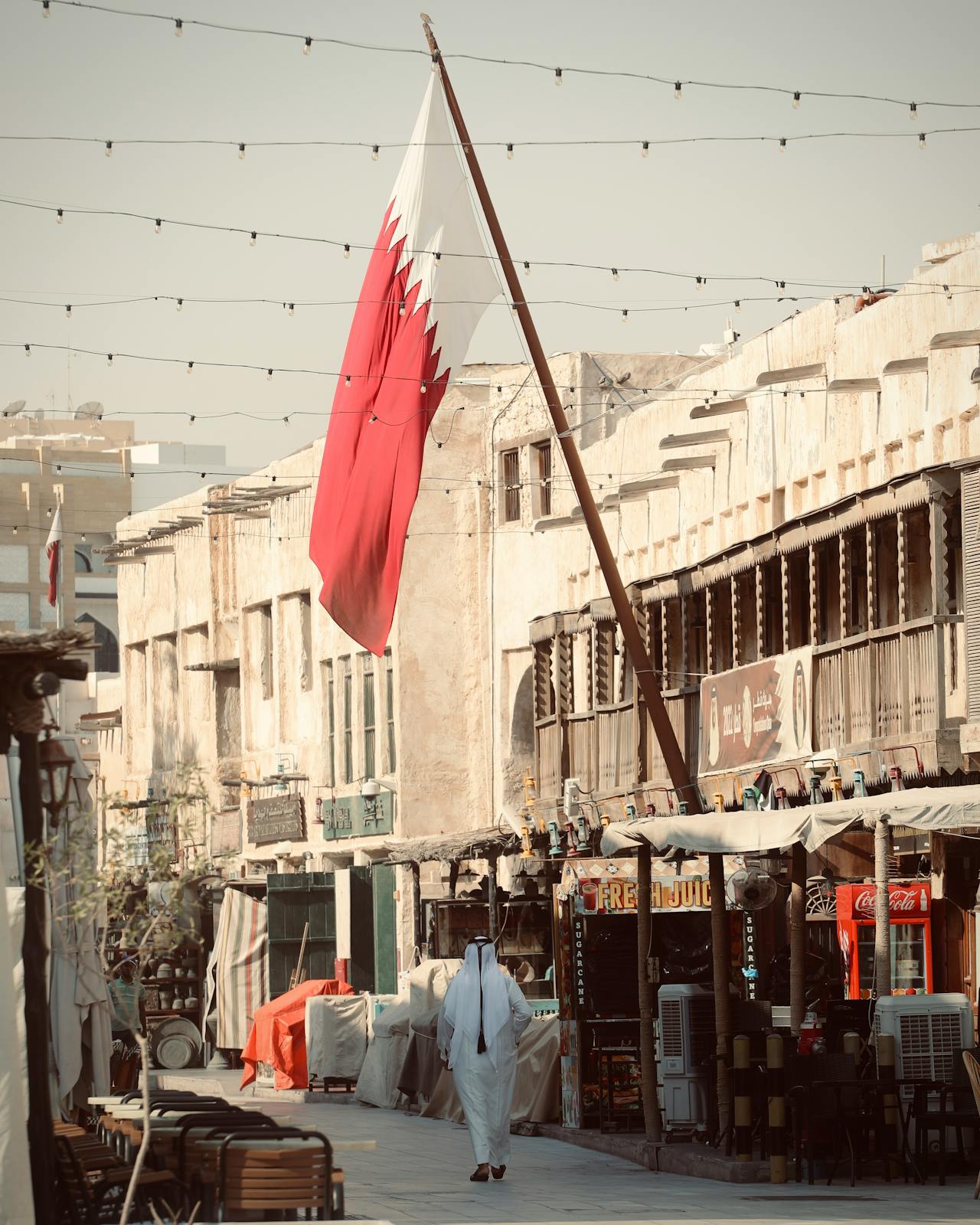

Qatar’s Role within WTO Agreements and Global Trade Remedies
Qatar’s anti-dumping regime does not exist in isolation – it is a part of Qatar’s broader engagement with international trade rules and its commitments under the World Trade Organization agreements. Here’s how Qatar’s role within the WTO framework influences its anti-dumping practices and vice versa:
Alignment with WTO Rules:
As noted, Qatar’s laws (Law 2 of 2019 and GCC Law 10 of 2013) were crafted to mirror the WTO Anti-Dumping Agreement’s provisions. This is deliberate. By aligning closely with WTO rules, Qatar ensures its anti-dumping actions are internationally defensible. Article 1 of the WTO Anti-Dumping Agreement makes clear that WTO members must not impose anti-dumping measures unless an investigation finds dumping, injury, and causation according to the Agreement’s guidelines. Qatar abides by this principle. In practice, before MoCI approves any anti-dumping duty, it makes sure that the investigation process and findings could withstand scrutiny by the WTO. This alignment protects Qatar from foreign retaliation or sanctions that could occur if it were found to be using anti-dumping measures improperly.
Active Participation in WTO Committees:
Qatar actively participates in the WTO Committee on Anti-Dumping Practices (often just called the Anti-Dumping Committee). This committee is where all WTO members exchange information on their anti-dumping laws and actions. Qatar submits notifications of any new anti-dumping investigations and measures to this committee, as required. In 2022, Qatar was honored to chair this WTO committee, guiding discussions on anti-dumping procedures and transparency. During its chairmanship, Qatar helped highlight the importance of timely notifications and standardizing investigative practices. This leadership role indicates that Qatar is not only following the rules but is also helping to shape and reinforce best practices in trade remedy use globally.
GCC and Trade Remedy Cooperation:
On a regional front, Qatar collaborates with its GCC partners on trade remedies. The GCC Unified law (10 of 2013) and its Technical Secretariat for Anti-Injurious Practices in International Trade (a GCC-level body) provide a mechanism for collective action. In some instances, dumping affecting multiple GCC states might be investigated at a regional level, and duties could be imposed GCC-wide. Qatar’s own national measures can dovetail with these efforts. For example, the automotive battery case saw Qatar imposing duties nationally, and one can imagine similar cases being addressed regionally if they broadly impact the Gulf market. This dual track (national and regional) enhances Qatar’s ability to respond to unfair trade while keeping cooperation with neighbors.
WTO Dispute Settlement Role:
Qatar is also experienced in WTO dispute settlement, having been involved in cases as both complainant and respondent (outside the anti-dumping context as well). This means Qatar is well aware of the importance of compiling strong evidentiary records and legal reasoning for any trade measure. In the unlikely event a Qatari anti-dumping measure is challenged at the WTO, Qatar would defend it by demonstrating to a WTO panel that it followed the Anti-Dumping Agreement to the letter – from proper initiation to objective injury analysis to proportional remedies. Knowing this potential oversight, Qatar’s investigators and legal advisors work diligently to ensure each step of an anti-dumping case is WTO-compliant.
Commitment to Free Trade vs Fair Trade:
Qatar’s overarching trade policy aims to strike a balance between free trade and fair trade. The country has low general tariff rates and encourages imports and competition, as evidenced by numerous trade agreements and a generally open market. However, Qatar is firm that free trade must also be fair. Anti-dumping measures are one of the key tools to protect free competition – by countering price distortions, they uphold the principle that trade should reflect genuine market values. Qatar’s officials have noted that anti-dumping is crucial for safeguarding legitimate competition in international trade. In WTO forums, Qatar supports efforts to improve the clarity and effectiveness of anti-dumping rules, so that all members can address genuine dumping without veering into protectionism.
In conclusion, Qatar’s role in the WTO and adherence to international agreements bolsters the credibility of its anti-dumping actions. For businesses, this means Qatar’s trade remedy decisions are not arbitrary or politically driven; they are grounded in a stable, predictable set of rules. Companies can look at WTO jurisprudence and Qatar’s own laws to understand how a case will be handled. And when seeking counsel or making decisions, businesses can take confidence that Qatar’s system is designed to meet global standards – offering protection from unfair trade while maintaining a fair hearing for all parties involved.
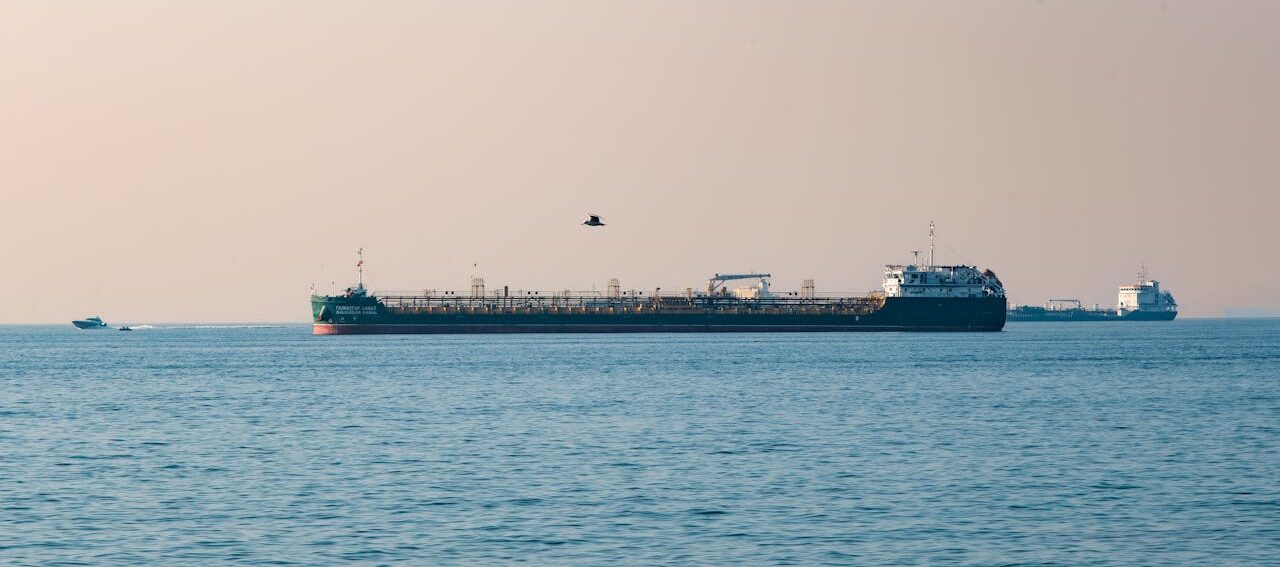
Best Practices and Compliance Advice for Companies (Importers & Exporters)
Whether you are a company importing into Qatar or exporting from Qatar, understanding anti-dumping laws and being proactive is key to avoiding problems. Here are some best practices and compliance tips to navigate Qatar’s anti-dumping landscape:
- For Exporters to Qatar: If you export goods to Qatar, especially in price-sensitive industries (steel, chemicals, batteries, etc.), be mindful of your pricing strategies. Avoid selling at unreasonably low prices in the Qatari market compared to your home market. Not only can dumping lead to legal duties, but selling below cost is often unsustainable. Ensure you maintain documentation of your pricing structure – if your export prices are lower due to legitimate reasons (e.g. lower quality product, promotional discounts, or economies of scale), keep evidence of these justifications. In the event of an inquiry or investigation, you will need to demonstrate that either you are not dumping or the margin is minimal. Stay alert to industry trends in Qatar; if local producers are raising concerns about imports, that’s a sign to review your pricing. Cooperate fully if MoCI launches an investigation: respond to questionnaires accurately and on time. Cooperation can sometimes lead to more favorable outcomes (non-cooperative exporters might get a higher “facts available” duty based on worst-case assumptions). It’s also wise to engage a legal advisor in Qatar who specializes in trade laws – they can liaise with the authorities on your behalf and help present your case effectively.
- For Qatari Importers: If your business in Qatar relies on imported products, you should conduct due diligence on your suppliers’ pricing. If a foreign supplier offers goods at an unusually low price, consider asking why – is it a temporary sale, or could it be dumping? Remember that if an anti-dumping duty is imposed, you as the importer may have to pay the extra tariff, which could suddenly hurt your margins. It’s prudent to diversify your supplier base so you’re not overly reliant on one source that could get hit with duties. Keep an eye on announcements by MoCI – they often call for participation from importers when investigating a case. As an importer, you have the right to provide input (for example, you might argue how critical the import is to the local market or if you believe the pricing is fair). If a duty is imposed and you disagree with it, you can support an exporter’s appeal or even independently appeal if you’re directly affected. Also, ensure you comply with any new customs requirements – if duties are imposed, classify the goods correctly and pay the duties to avoid penalties. It can be beneficial to have a contingency plan, such as a clause in supply contracts about unforeseen duties, to share the cost impact with the exporter.
- For Qatari Companies Exporting Abroad: While Qatar’s focus is on imports into its market, Qatari exporters should be aware that other countries have similar anti-dumping rules. If you export products (e.g., aluminum, petrochemicals, fertilizers) to foreign markets, stay informed about the pricing norms and anti-dumping probes in those regions. Avoid dumping abroad – just as you expect foreigners not to dump in Qatar, maintain fair pricing in your export markets to reduce the risk of foreign anti-dumping duties on your products. If another country initiates an anti-dumping investigation against Qatari exports, engage with Qatar’s government (MoCI and perhaps Ministry of Foreign Affairs) – Qatar can support you through diplomatic channels or WTO dispute settlement if necessary. Essentially, practicing fair trade in both directions helps maintain Qatar’s reputation and prevents foreign measures that could hurt your export revenue.
- Consult Legal and Trade Experts: Anti-dumping law is technical. Companies, whether exporters or importers, should seek expert advice when dealing with such issues. Law firms in Qatar with international trade practices can provide guidance on compliance and represent companies in investigations or appeals. They can also help companies prepare in advance – for instance, by conducting internal reviews of pricing (a “dumping margin simulation”) to see if you have risk exposure. It’s much better to address potential dumping issues proactively than to face a surprise duty.
- Maintain Good Record-Keeping: This is a fundamental compliance tip. Keep detailed records of all sales, costs, and exports. If an investigation arises, having a well-documented cost accounting system and transaction records can make all the difference. Authorities often ask for data going back 1–2 years; being able to readily provide accurate data builds credibility. Conversely, poor records can lead to authorities using the information available from the complainant or secondary sources, which may be less favorable to you.
- Stay Updated on Trade Regulations: Anti-dumping measures and investigations are sometimes announced with little public fanfare. Companies should monitor the Official Gazette, MoCI press releases, and industry news for any mention of trade remedy actions. The earlier you know about a potential issue, the better you can respond. If you hear that local producers in Qatar are unhappy with import prices, consider that a red flag. Joining industry associations or chambers of commerce can help, as they often circulate news about trade issues to members. For example, if a GCC-wide investigation is initiated on a product, your industry association might alert you – giving you time to adjust or prepare a defense.
By following these best practices, companies can minimize the risk of anti-dumping troubles and even if faced with an investigation, can navigate it more effectively. The key themes are awareness, preparedness, and cooperation. Qatar welcomes foreign trade and investment, and by playing by the rules and staying proactive, companies can ensure they continue to access the Qatari market successfully without legal hurdles.

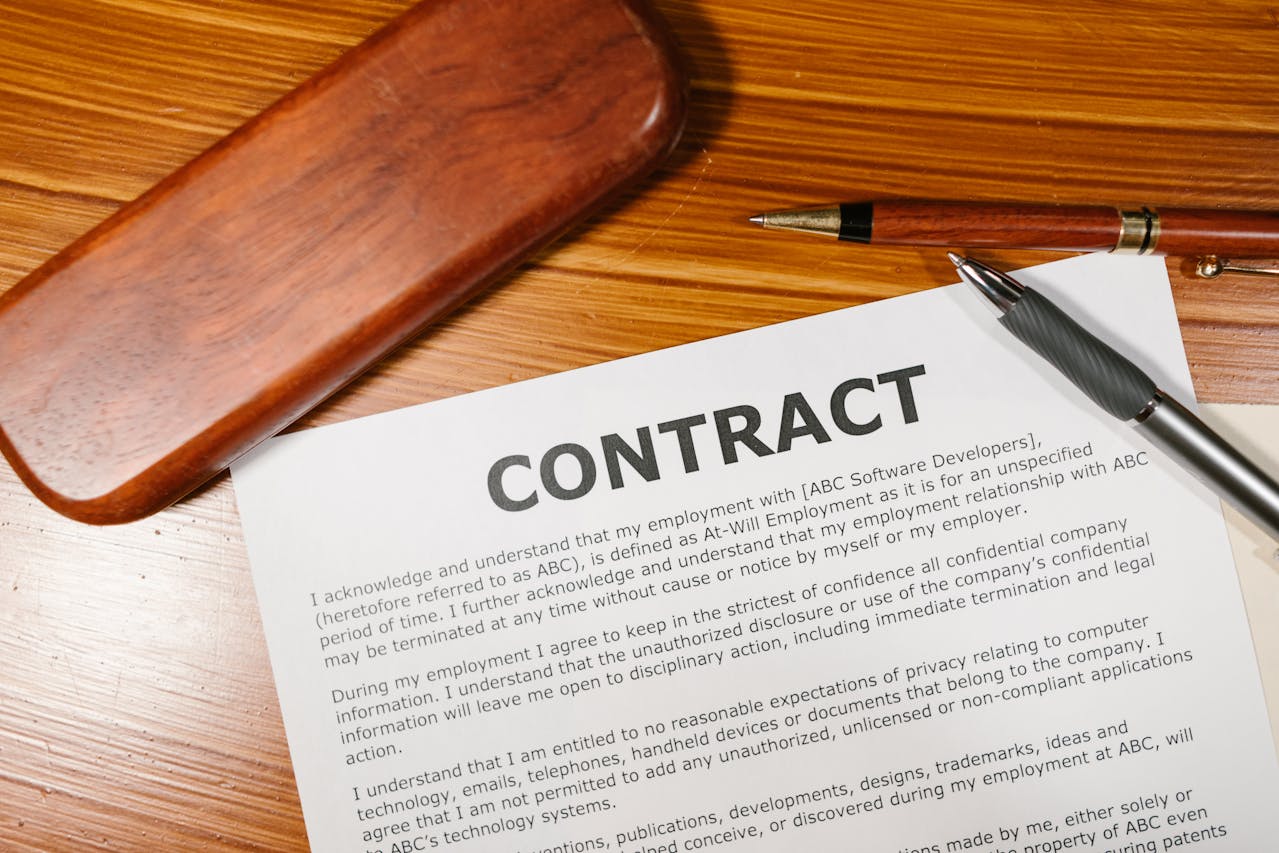
How Qatari Businesses Can Protect Themselves from Unfair Trade Practices
From the perspective of Qatari manufacturers and producers, anti-dumping laws are vital tools to ensure a level playing field. If you run a business in Qatar and face competition from imported products, here’s how you can protect your interests against dumping or other unfair trade practices:
- Stay Vigilant in the Market: Keep a close watch on competing imports in your sector. If you notice foreign products suddenly being sold at extremely low prices – prices you know are below the normal cost – this is a warning sign of potential dumping. Monitor import statistics (if available) for surges in volume. Your familiarity with the market is the first line of defense. Sometimes, your sales agents or clients may tell you that an imported product is being offered much cheaper; take such reports seriously and gather details (product specifications, origin country, offered price).
- Gather Evidence of Dumping and Injury: Suspicion alone is not enough – you will need evidence to present to authorities. Begin collecting data: for example, obtain samples of import prices (quotes or invoices) and compare them to the price of the product in the exporter’s home market. If possible, get international market reports or ask a partner abroad to check the local price. Document the impact on your business – have your sales fallen significantly? Are you having to cut prices or lose contracts because you’re undercut? Keep records of these changes, as well as inventory build-ups or production cuts. The more quantifiable evidence you have of both the price disparity and the harm it’s causing, the stronger your case will be.
- Use the Legal Mechanism – File a Complaint: Qatar’s law empowers you to take action by filing a dumping complaint with the Ministry of Commerce and Industry. You don’t have to navigate this alone – consider consulting with a legal advisor or trade consultant who can help prepare the petition. The complaint should be comprehensive: include all evidence of dumping and injury, identify the product and countries involved, and describe your industry (your share of the market, number of employees, etc.). According to the law’s procedures, you may need to fill specific forms and provide a certain minimum information for the case to be accepted. Ensure accuracy and completeness to avoid delays. Once submitted, the Committee at MoCI will confidentially review your complaint. If they find it substantiated, they will launch the official investigation – which is the goal, as that opens the door to eventual relief measures.
- Engage and Cooperate with Investigators: After filing, be prepared to work closely with MoCI. The Committee might come back with questions or requests for additional data. Respond promptly and thoroughly. You may also be asked to assist in identifying importers or foreign producers to ensure they are notified. Throughout the investigation, you will likely have opportunities to review and comment on findings (for instance, you might be shown a non-confidential summary of the dumping margin calculated). Provide any clarifications that support your case – remember, as the domestic industry, you have the burden to demonstrate injury and causal link. If the foreign side makes arguments (e.g., claiming your injury is due to something else), you should rebut them with evidence if possible. Your active participation helps ensure the investigators have the full picture of how dumping affects you.
- Leverage Industry Alliances: If the problem is industry-wide, consider forming a coalition with other Qatari producers of the same product. A joint complaint carries more weight (authorities want to see that the “domestic industry” as a whole, or at least a major portion of it, supports the case). An industry association can file on behalf of multiple companies. Not only does this spread the workload of data collection, but it also demonstrates unity and seriousness. Additionally, an association can help with funding the legal and research costs involved in a complex anti-dumping case.
- Prepare for Possible Outcomes: While you aim for anti-dumping duties to be imposed, plan for various scenarios. If provisional measures are applied, how will that improve your situation? (Likely, it will help you regain some market share or increase sales – be ready to scale up production if needed when import prices rise.) If, for some reason, the investigation doesn’t result in duties (maybe dumping wasn’t conclusively proven), consider alternative strategies: Are there other support programs for local industries? Could safeguard measures be an option if it was more an import surge issue? MoCI might guide you on these if dumping isn’t the right tool. Always be prepared to adapt your business strategy depending on the outcome.
- Monitor Enforcement and Evade Circumvention: If an anti-dumping duty is finally imposed on the competing imports, that’s a significant win – but the work isn’t fully over. Monitor the market during the enforcement period. Sometimes foreign exporters may try to circumvent duties by shipping the product via third countries or making minor product modifications to avoid the scope of the duty. If you suspect such tactics, report it to MoCI. Qatar can extend duties to circumvented products or adjust the scope if necessary. Also, keep track of whether the duties are actually having the intended effect – for instance, are those cheap imports now gone or priced appropriately? Provide feedback to the Ministry if issues arise. After several years, when the duty is up for review (a “sunset review” typically around the five-year mark), be prepared to show if dumping is continuing or likely to resume, to argue for an extension of the duties.
- Strengthen Your Competitiveness: While using the legal tools, don’t neglect business improvements. Anti-dumping measures give breathing room to domestic industries, but they are not meant to be permanent crutches. Use the time to become more competitive – improve efficiency, reduce costs, enhance quality, diversify product lines. That way, you’ll be in a stronger position regardless of future import competition. The government’s goal is to support competitive national products, so take that cue to invest in competitiveness.
Qatari businesses have a supportive ally in the government when it comes to fighting unfair trade. Law No. 2 of 2019 was essentially enacted “to support the competitiveness of national products,” and it provides a clear avenue for redress. By being proactive and informed, local companies can shield themselves from injurious dumping. The key is to act early – once your business has been significantly damaged, it might be too late to recover even if duties are imposed. But if you act when the threat becomes apparent, the legal remedies can mitigate the damage and preserve your market. In combination with sound business practices, Qatar’s legal framework is a powerful means for domestic industries to defend against unfair international pricing tactics.

Conclusion
Anti-dumping investigations and measures in Qatar serve as a crucial defense mechanism for the national economy, ensuring that international trade with Qatar remains fair and sustainable. Dumping – the import of goods at unfairly low prices – can severely impact local industries, but Qatar has put in place a comprehensive legal framework (rooted in WTO rules, GCC cooperation, and strong national laws) to tackle this challenge. Through Law No. 2 of 2019 and its procedures, Qatar can rigorously investigate allegations of dumping and impose remedies ranging from anti-dumping tariffs to other protective measures on offending imports. These legal consequences not only provide relief to injured Qatari producers but also send a clear message that Qatar’s market is open but not open for exploitation.
For businesses operating in Qatar or trading with Qatar, understanding these anti-dumping laws is essential. Importers and foreign exporters are advised to maintain compliance with international trade regulations in Qatar by adopting fair pricing and cooperating with any investigations. The process is transparent and affords rights to all parties – and there are avenues to appeal or seek adjustments if needed, ensuring that measures are applied justly. On the other side, Qatari companies now have a well-defined path to seek legal recourse when faced with unfair trade practices, empowering them to protect their market share and invest confidently in expansion.
In the bigger picture, Qatar’s commitment to upholding WTO disciplines while safeguarding domestic interests exemplifies its balanced approach to globalization. By enforcing anti-dumping laws, Qatar helps maintain healthy competition where no player gains an artificial advantage, ultimately benefiting consumers, producers, and the economy at large. Companies looking to do business in Qatar’s market – whether importing or exporting – should take note of these legal realities. With prudent strategies and perhaps guidance from legal consultants well-versed in Qatari trade law, businesses can thrive in Qatar’s fair trading environment.

